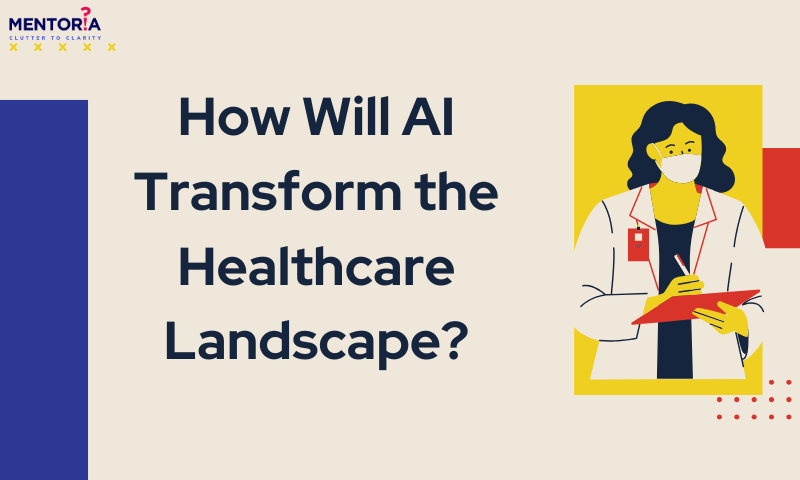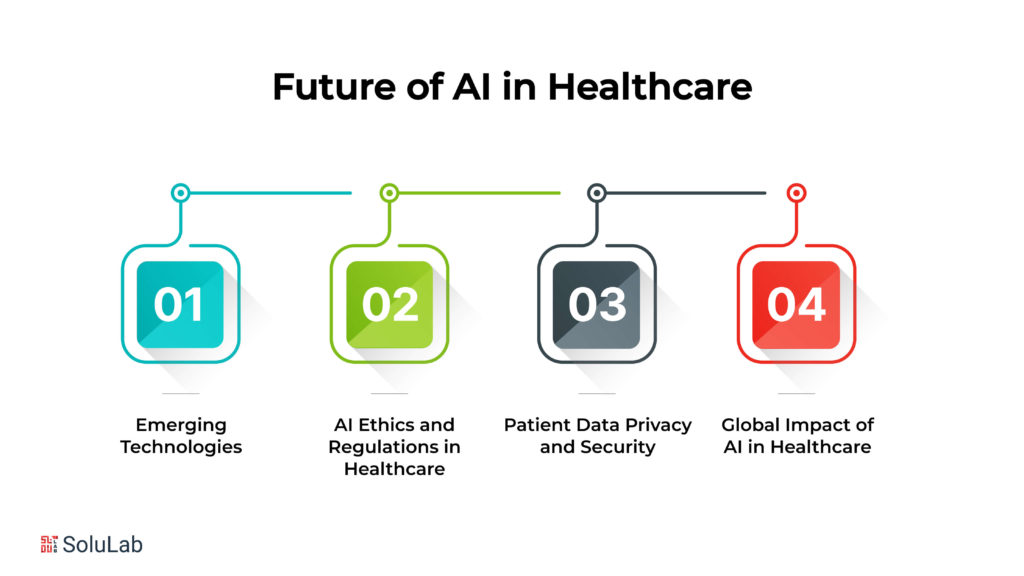How Will AI Transform the Healthcare Landscape?

Ever wondered how AI is changing healthcare? It’s revolutionising the field by improving diagnoses, treatment plans, and patient care through advanced technology. Think of systems that predict disease complications or enhance surgeries with pinpoint accuracy—this is healthcare’s AI-powered future.
We recently discussed this transformation with Dr. Shirin Saini, a seasoned healthcare business analyst. She shared how AI is enhancing efficiency, boosting patient outcomes, and introducing innovative solutions in healthcare.
Want to learn more? Watch Mentoria’s webinar where leading experts discuss the future of Healthcare and how technology will shape it.
AI and Its Impact on Radiology and Dentistry
AI is revolutionising specialised fields like radiology and dentistry. In radiology, advanced systems can highlight concerns in medical images, like tumours or lesions, allowing radiologists to detect and treat issues sooner. “AI improves the accuracy and speed of diagnosis,” notes Dr. Saini.
Similarly, in dentistry, AI predicts potential diagnoses and suggests tailored treatment plans based on symptoms. Dr. Saini explains, “It’s making processes more efficient and patient-focused, transforming how dental care is delivered.”
Predictive AI Models in Chronic Disease Management
AI is particularly effective in the management of chronic diseases. For example, in diabetes management, AI tools are used to predict the onset of complications by monitoring a patient’s vital signs and assessing their treatment plan. Dr. Saini explains that AI models can forecast the likelihood of conditions like diabetic neuropathy or retinopathy developing. It would also allow healthcare providers to intervene early and adjust treatment plans to avoid complications.
Research indicates that AI and machine learning models are increasingly used in managing chronic diseases, improving patient outcomes by predicting disease progression and complications. These predictive capabilities are crucial in preventing unnecessary hospital admissions and enhancing the overall quality of life for patients.
The Future of AI in Healthcare
Credits: SoluLab
AI is opening exciting possibilities in healthcare. Here’s what’s ahead:
-
Personalised Medicine
AI will use genetics and lifestyle data to customise treatments. Dr. Saini highlights its success in oncology, where AI identifies the best therapies for individual patients. -
Enhanced Diagnostics
AI will reduce diagnostic errors by spotting patterns invisible to the human eye. Dr. Saini adds, “These tools are reshaping diagnosis, especially in radiology, with greater precision.” -
Predictive Healthcare
AI will predict complications in chronic diseases, helping doctors intervene earlier. Research shows these models are already preventing serious outcomes in conditions like diabetes. -
Workflow Automation
AI will handle routine admin tasks like scheduling and billing. Dr. Saini points out, “This frees up healthcare professionals to focus on what matters most—patient care.” -
Robotic Surgery
AI-driven robotics will make surgeries more precise and less risky. Dr. Saini envisions procedures with shorter recovery times and improved outcomes. -
Drug Discovery
AI is speeding up drug development, cutting costs and time. It’s already identifying promising candidates, accelerating their journey to approval. -
Mental Health Care
AI will revolutionise mental health by identifying disorders early and offering tailored treatment plans. “It’s making mental health care more proactive and accessible,” Dr. Saini says.
Conclusion: Embracing AI in Healthcare Careers
As Dr. Saini explains, AI is here to support—not replace—healthcare professionals. “It empowers them to make better decisions and improve patient outcomes,” she says.
For those entering health informatics, AI offers exciting opportunities to innovate and enhance care. By mastering its tools and ethical considerations, professionals can lead this transformation and shape the future of global healthcare.







